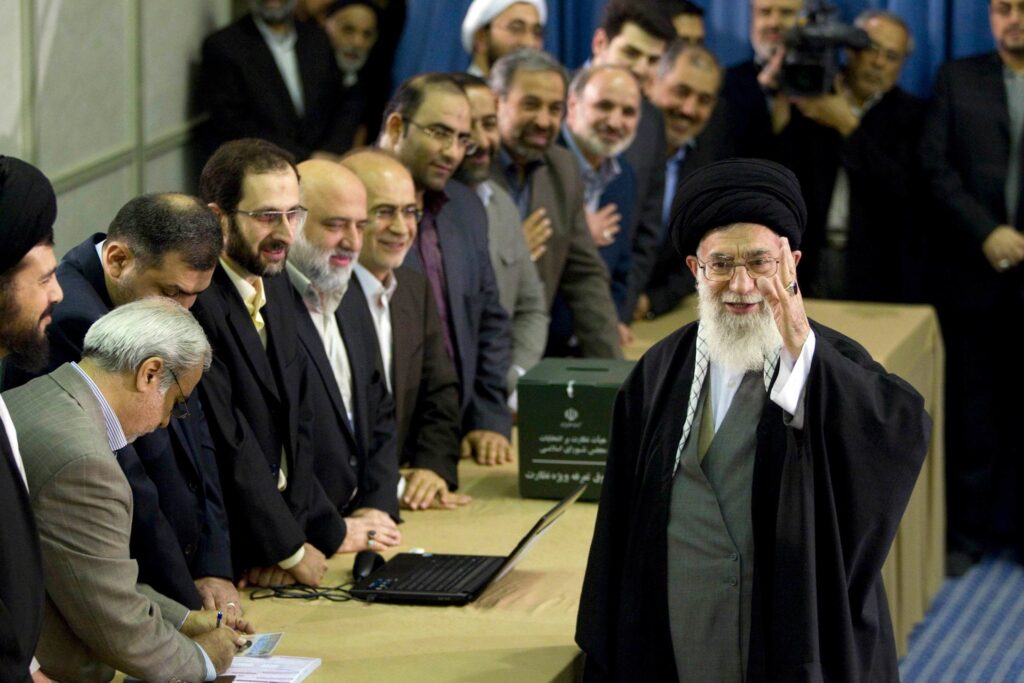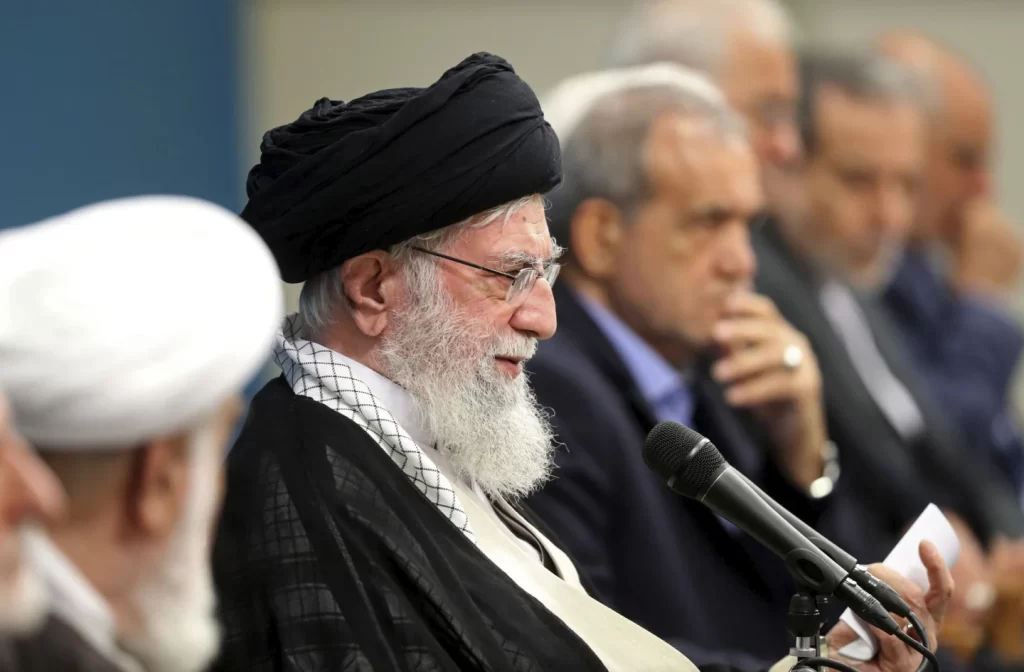In a significant shift in rhetoric, Iran’s Supreme Leader Ayatollah Ali Khamenei on Tuesday signaled a willingness to engage in renewed negotiations with the United States regarding Iran’s advancing nuclear program. Addressing the country’s civilian government, Khamenei stated there was “no barrier” to engaging with the “enemy,” while simultaneously cautioning against placing trust in Washington.

Speaking in a video broadcast by state television, Khamenei, who holds final say on all state matters, remarked, “We do not have to pin our hope to the enemy. For our plans, we should not wait for approval by the enemies. It is not contradictory to engage the same enemy in some places, there’s no barrier.”
The Supreme Leader’s comments come at a crucial juncture, with reformist President Masoud Pezeshkian’s government seeking to navigate complex diplomatic waters. Khamenei’s statements echo sentiments expressed around the time of Iran’s 2015 nuclear deal with world powers, which saw Tehran’s nuclear program significantly curtailed in exchange for sanctions relief.
However, the geopolitical landscape has shifted dramatically since then. The United States, under former President Donald Trump, unilaterally withdrew from the deal in 2018. Subsequently, Iran has abandoned all limits imposed by the agreement, now enriching uranium to up to 60% purity — dangerously close to weapons-grade levels of 90%.
The International Atomic Energy Agency (IAEA) has faced significant challenges in monitoring Iran’s nuclear activities. Surveillance cameras have been disrupted, and some of the agency’s most experienced inspectors have been barred from sites. Iranian officials have also increasingly hinted at the possibility of pursuing atomic weapons.

Tensions in the broader Middle East further complicate the situation. The ongoing Israel-Hamas war in Gaza and Iran’s recent unprecedented drone-and-missile attack on Israel in April have heightened regional instability. The assassination of Hamas leader Ismail Haniyeh in Tehran has added another layer of complexity to the already volatile situation.
President Pezeshkian, who came to power following a helicopter crash that claimed the life of hard-line President Ebrahim Raisi, campaigned partly on a promise to reengage the West through negotiations. Khamenei’s remarks could provide the political cover needed for such initiatives. Notably, Pezeshkian’s new foreign minister, Abbas Araghchi, played a key role in negotiating the 2015 nuclear deal.
The U.S. State Department, responding to Khamenei’s comments, told The Associated Press, “We will judge Iran’s leadership by their actions, not their words.” The department emphasized that while diplomacy is viewed as the best path forward, Iran’s recent nuclear escalations and lack of cooperation with the IAEA have created significant obstacles.
As Iran contemplates reengagement, the upcoming U.S. presidential election in November adds another layer of uncertainty. The potential return of Donald Trump to the presidency is a concern for Tehran, while a possible Kamala Harris administration’s stance on Iran remains unclear.
The meeting between Khamenei and Pezeshkian’s Cabinet also saw the appearance of former Foreign Minister Mohammad Javad Zarif, a key architect of the 2015 deal. Zarif announced he would continue to serve as a vice president in Pezeshkian’s administration, suggesting a potential return to a more diplomatic approach in Iran’s foreign policy.



